Share

Battle Lines
Why are foreign fighters joining Myanmar’s civil war?
•
Roland Oliphant is joined by The Telegraph’s Sarah Newey to talk about her interview with one of the international combatants fighting in Myanmar’s brutal civil war. Plus: as violence escalates in Haiti, MSF are suspending activities in the metropolitan area of Port-au-Prince until further notice. We hear from their head of mission about the decision and what the mood is like on the ground.
Contributors
Roland Oliphant (Host)
Sarah Newey (Global Health Security Correspondent)
Christophe Garnier (MSF’s Head of Mission in Haiti)
More episodes
View all episodes
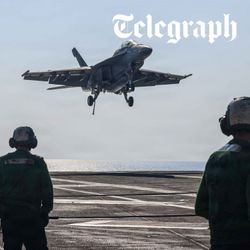
Trump’s Iran plan: 'kick the door in' and hit the regime where it hurts
48:51|The drumbeat of war in the Middle East is getting louder - and once again it’s Iran in America’s crosshairs.A second round of talks over Iran’s alleged nuclear weapons programme ended this week without a deal. In the last few days, dozens of American fighter jets and refuelling tankers have joined the US's two carrier strike groups in the region. This is now the largest American military buildup in the Middle East since the Iraq war in 2003.Venetia chats to Henry Bodkin, The Telegraph's Jerusalem correspondent, and Roland Oliphant, chief foreign affairs analyst about when war might break out and how it could unfold.Plus Roland speaks to Maryam Mazrooei, an Iranian journalist and war photographer who fled the country after being arrested and imprisoned in 2022, about whether American-led regime change would spark a civil war in Iran.Read - Trump sends fighter jet squadron to ‘kick the door down’ in Iran: https://www.telegraph.co.uk/world-news/2026/02/18/us-military-aircraft-heading-towards-iran/Producer: Sophie O'SullivanExecutive Producer: Louisa Wells► Sign up to our most popular newsletter, From the Editor. Look forward to receiving free-thinking comment and the day's biggest stories, every morning. telegraph.co.uk/fromtheeditorContact us with feedback or ideas:@venetiarainey@RolandOliphant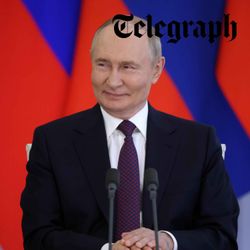
Frog poison, tear gas and Novichok: Inside Russia’s chemical weapons programme
32:27|Two years ago, Russian opposition leader Alexei Navalny died in a Siberian penal colony. There was an outcry and many suspected foul play, but nothing could be proved. That is until last weekend, when five European countries including the UK announced that they had made a startling discovery: Navalny had been killed with a rare frog poison.How was the poison was identified, how were the samples smuggled out of Russia, and why does the evidence point directly to Moscow?Venetia and Arthur speak to former commanding officer of the UK’s Chemical, Biological, Radiological and Nuclear Regiment and Telegraph columnist, Hamish de Bretton-Gordon, and Dr Gemma Bowsher, Senior Research Associate for the Centre for Conflict and Health Research at Kings College London.Producer: Sophie O'SullivanExecutive Producer: Louisa WellsStudio Operator: Meghan Searle► Sign up to our most popular newsletter, From the Editor. Look forward to receiving free-thinking comment and the day's biggest stories, every morning. telegraph.co.uk/fromtheeditorContact us with feedback or ideas:battlelines@telegraph.co.uk@venetiarainey@ascottgeddes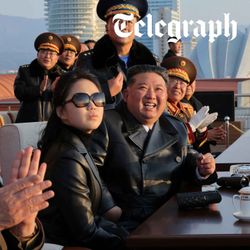
North Korea 'names' 13-year-old nuclear heiress & inside Europe’s race to rearm
31:29|North Korea’s dynasty dictatorship has taken on a new leather clad, second-in-command. Reports from South Korea have suggested that Kim Jong Un’s daughter Kim Ju-ae is now the heir apparent in the totalitarian state. Could she one day be the youngest person to command a nuclear arsenal? Roland chats to The Telegraph’s Lily Shanagher and from the University of Oxford, North Korea watcher, Dr Edward Howell, to unpack what we know from the shadows.Plus, after the Munich Security Conference at the weekend, Europe is facing a new future without Washington’s steadying hand and will have to be less reliant on the Stars and Stripes. But is European defence manufacturing scaling up in line with these new demands? Roland speaks to Philip Lockwood from defence startup Stark to find out just how quickly the ambitions are being realised. Read Lily's article on Kim Ju-ae: https://www.telegraph.co.uk/world-news/2026/02/16/kim-opens-neighbourhood-families-soldiers-killed-ukraine/Pic credit: KCNA via ReutersProducer: Peter ShevlinExecutive Producer: Louisa Wells► Sign up to our most popular newsletter, From the Editor. Look forward to receiving free-thinking comment and the day's biggest stories, every morning. telegraph.co.uk/fromtheeditorContact us with feedback or ideas:@venetiarainey@RolandOliphant
Vance’s ‘Enemy Within’: How the US shocked Europe into rearmament
39:45|A year ago, JD Vance gave an explosive speech at the Munich Security Conference. It marked a fundamental shift in the relationship between the US and its European allies that have since been cemented through tariff wars, a new National Security Strategy and threats to take Greenland. So has Europe risen to the challenge laid down by Donald Trump's administration and started to take care of its own security? Is there any trust left in the trans-Atlantic relationship? And will there be another attack on Europe at this weekend's Munich conference? Venetia and Roland chat to David Blair, Chief Foreign Affairs Commentator, and Joe Barnes, Brussels Correspondent to find out. Read Joe Barnes's story on how Europe ‘must become military superpower’ to survive without US: https://www.telegraph.co.uk/world-news/2026/02/11/europe-must-be-military-superpower-to-survive-without-us/Read David Blair's analysis: https://www.telegraph.co.uk/authors/d/da-de/david-blair/Pic credit: Matthias Schrader/APProducer: Peter ShevlinExecutive Producer: Louisa Wells► Sign up to our most popular newsletter, From the Editor. Look forward to receiving free-thinking comment and the day's biggest stories, every morning. telegraph.co.uk/fromtheeditorContact us with feedback or ideas:@venetiarainey@RolandOliphant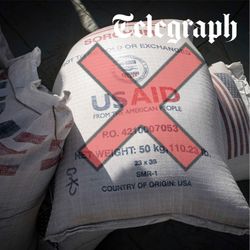
Trump’s 9 million death gamble: One year since he axed USAID
37:07|Nearly a year after Donald Trump shuttered USAID, the world is still reckoning with the consequences. But what really happened next?Venetia Rainey examines the fallout and what it means for global health, security, and stability. Joined by Global Health Security Editor, Paul Nuki, she explores how the abrupt withdrawal of America’s largest aid agency sent shockwaves through the global aid system, disrupted lifesaving programmes, and potentially contributed to millions of preventable deaths.They are joined by Angeli Achrekar, Deputy Executive Director of UNAIDS, and Kevin Melton, a former USAID official and now CEO of PAX Strategies, offering insider perspectives on what was lost and what may be emerging in its place.Producer: Sophie O'SullivanExecutive Producer: Louisa WellsStudio Operator: Meghan Searle► Sign up to our most popular newsletter, From the Editor. Look forward to receiving free-thinking comment and the day's biggest stories, every morning. telegraph.co.uk/fromtheeditorContact us with feedback or ideas:battlelines@telegraph.co.uk@venetiarainey@ascottgeddesPic credit: Simon Townsley
Project Vault: Trump's battle to break China’s critical mineral stranglehold
41:49|Donald Trump has moved the war for critical minerals from the margins of policy to the heart of great power rivalry. In this episode of Battle Lines, we look at Project Vault, America's bid to take back control of the critical minerals and rare earths supply chain from China. This bid to build a vast new stockpile and industrial strategy was unveiled at the inaugural US Critical Minerals Ministerial Summit last week. Supporters see it as a necessary first step to protect American industry and national security. Critics warn that for middle countries, it may simply shift dependencies rather than break them.Venetia talks to Sibylline Chief Analyst Sam Olsen to unpack what Project Vault really means, why processing matters more than mining, and how China has weaponised its dominance in ways OPEC never could. Plus, a deep dive on how Greenland fits into the West's rare earths strategy. Greenland Energy, Business and Mineral Resources Minister Naaja Nathanielsen on that Trump deal, Chinese influence and the challenges of mining on the island. Producer: Peter ShevlinExecutive Producer: Louisa Wells► Sign up to our most popular newsletter, From the Editor. Look forward to receiving free-thinking comment and the day's biggest stories, every morning. telegraph.co.uk/fromtheeditorContact us with feedback or ideas:@venetiarainey@RolandOliphant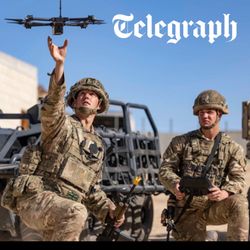
'Copy Ukraine's defence model and reduce China dependency to survive'
01:02:17|Was Peter Mandelson's appointment as UK ambassador to the US a national security risk? Should the US and UK bomb Iran to spark regime change? Will Nato survive Trump? And how should European countries deal with the threat of China?British shadow defence secretary and former procurement minister James Cartlidge joins Roland and Venetia to discuss the biggest news stories in British and global defence at the moment, from Russia's Yantar 'spy ship' to the 'poison chalice' and beleaguered Ajax tank program.We want to hear why you enjoy Battle Lines! Email us: battlelines@telegraph.co.ukRead Sophia Yan's story on how China is powering Putin’s deadly new Oreshnik missiles: https://www.telegraph.co.uk/world-news/2026/01/28/china-helping-russia-build-nuclear-capable-missile/Read Roland's analysis of the Army’s £6bn Ajax disaster: https://www.telegraph.co.uk/news/2025/12/23/inside-army-ajax-disaster/Producer: Peter ShevlinExecutive Producer: Louisa Wells► Sign up to our most popular newsletter, From the Editor. Look forward to receiving free-thinking comment and the day's biggest stories, every morning. telegraph.co.uk/fromtheeditorContact us with feedback or ideas:@venetiarainey@RolandOliphant
'No limits': Russia, China and US enter new nuclear arms race
32:06|This week, the New START treaty expires, ending the last remaining major nuclear arms control agreement between the United States and Russia. With no binding limits on the world’s two largest nuclear arsenals and China rapidly expanding its own, many fear the start of a new and dangerous era of proliferation.On this episode of Battle Lines: Global Health Security, Arthur Scott-Geddes and Sophie O’Sullivan are joined by Darya Dolzikova of the Royal United Services Institute and Matthew Bunn of Harvard Kennedy School to unpack why Donald Trump wants to rebuild America's nuclear stockpile and whether an arms race is already underway. As the Doomsday Clock edges closer to midnight, how worried should we be?Producer: Sophie O'SullivanExecutive Producer: Louisa WellsStudio Operator: Meghan Searle► Sign up to our most popular newsletter, From the Editor. Look forward to receiving free-thinking comment and the day's biggest stories, every morning. telegraph.co.uk/fromtheeditorContact us with feedback or ideas:battlelines@telegraph.co.uk@venetiarainey@ascottgeddes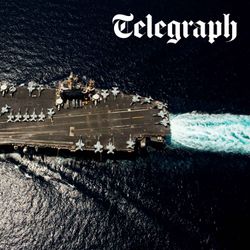
Trump masses 'large armada' to force Iran into nuclear deal
38:35|The United States appeared poised for a major military confrontation with Iran after Donald Trump ordered a powerful naval force into the region in response to the killing of thousands of Iranian protesters. The expected strikes never came. Instead, Washington has shifted towards using military pressure as leverage for a renewed nuclear deal.Does this mark a genuine de-escalation? Or is it merely a pause before conflict? As diplomacy falters, tensions remain high and, inside Iran, the regime faces deepening political fractures as internet blackouts lift and grim details of last month’s massacres begin to emerge.Roland is joined by The Telegraph’s Akhtar Makoii and Sascha Bruchmann from the International Institute For Strategic Studies.Producer: Peter ShevlinExecutive Producer: Louisa Wells► Sign up to our most popular newsletter, From the Editor. Look forward to receiving free-thinking comment and the day's biggest stories, every morning. telegraph.co.uk/fromtheeditorContact us with feedback or ideas:battlelines@telegraph.co.uk @venetiarainey@RolandOliphant